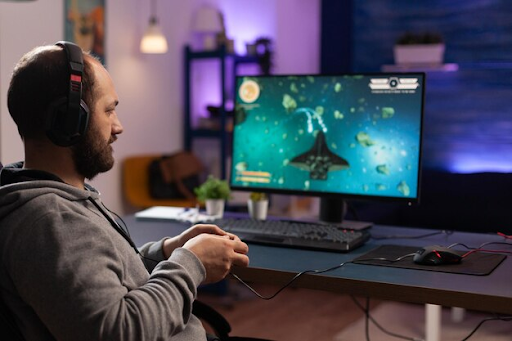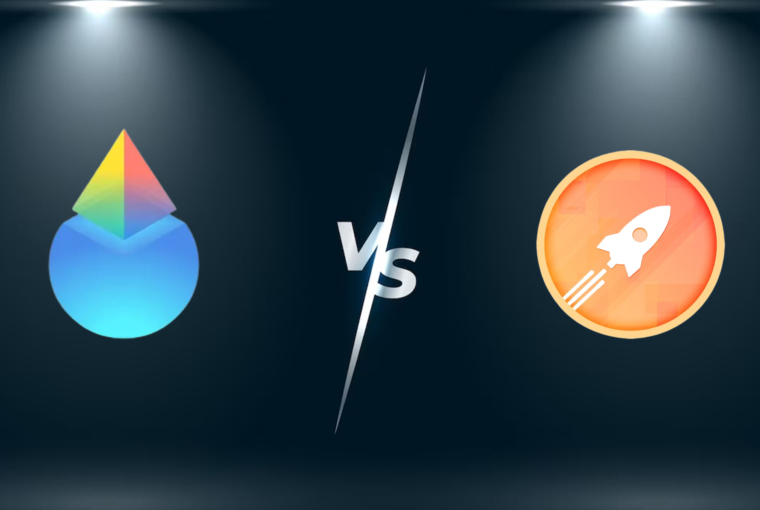The gaming world has always been at the forefront of technological innovation, constantly evolving to meet the demands of players. From arcade games to immersive online multiplayer experiences, the industry has transformed significantly over the decades. However, one of the most revolutionary shifts is happening now, thanks to blockchain technology. Blockchain is reshaping how players perceive ownership within games, introducing concepts like true asset ownership, decentralization, and play-to-earn economies.
In this article, we’ll explore how blockchain is redefining gaming ownership, its benefits, challenges, and what it means for the future of the industry.
What is Blockchain Ownership in Gaming?
Blockchain ownership in gaming refers to the concept of players having true digital ownership of in-game assets, secured through blockchain technology. Unlike traditional gaming systems where assets are controlled by developers, blockchain allows players to trade, sell, or keep items independently.
Traditional Ownership vs. Blockchain Ownership
In traditional gaming, players can acquire in-game assets such as skins, weapons, or characters. However, these assets are typically confined to the game’s ecosystem. Players don’t truly “own” these assets—they exist on centralized servers controlled by the game developer. This means that if the game is shut down or the servers are hacked, players can lose everything.
Blockchain, on the other hand, introduces a new paradigm: true digital ownership. Assets such as weapons, skins, or collectibles are minted as non-fungible tokens (NFTs) on a blockchain. This means players own these assets as unique, verifiable digital items that they can trade, sell, or use across multiple platforms without interference from developers.
Benefits of Blockchain in Gaming Ownership
Blockchain introduces numerous benefits to gaming ownership, such as true asset ownership, interoperability across Winbet2 games, and secure, transparent transactions. It also empowers players with play-to-earn opportunities and opens up new revenue streams for developers and creators.
1. True Ownership of Assets
With blockchain, players own in-game items outright. These assets are stored in their crypto wallets rather than on centralized servers, meaning they can’t be revoked or deleted by game developers. This ensures permanence and gives players complete control over their purchases.
2. Interoperability Across Games
Blockchain enables asset interoperability, meaning items acquired in one game can potentially be used in another. For instance, a rare sword from one fantasy game could be compatible with a different game in the same ecosystem. This creates a seamless, interconnected gaming experience.
3. Play-to-Earn Economies
Blockchain gaming introduces play-to-earn models, where players can earn cryptocurrency or NFTs by simply playing games. These earned items have real-world value, allowing players to monetize their time and skills. This concept is becoming increasingly popular with games like Axie Infinity and The Sandbox.
4. Transparency and Security
Blockchain’s decentralized nature ensures transparency. All transactions, trades, and asset ownership are recorded on an immutable ledger, reducing the risk of fraud. Additionally, blockchain networks are highly secure, providing a safer environment for gamers.
5. Empowering Content Creators
For developers and content creators, blockchain offers new revenue streams. Creators can design and sell unique NFTs or in-game items, earning royalties every time the item is resold. This creates an ongoing source of income.
Challenges of Blockchain Gaming Ownership
While blockchain gaming offers exciting possibilities, it also faces challenges like high entry costs, scalability issues, and regulatory uncertainty. These hurdles need to be addressed for blockchain gaming to reach its full potential.
1. High Entry Barriers
Many blockchain games on https://www.winbet2umy.com/my/en-us/ require players to purchase cryptocurrency or NFTs to start, which can be costly for newcomers. This creates a barrier to entry and limits accessibility.
2. Scalability Issues
Blockchain networks, especially older ones like Ethereum, often struggle with scalability. High transaction fees and slower processing times can negatively impact the gaming experience.
3. Regulatory Concerns
The regulatory environment around cryptocurrency and NFTs remains uncertain in many regions. This creates risks for both developers and players, as legal frameworks continue to evolve.
4. Environmental Impact
Some blockchains, particularly those using proof-of-work (PoW) systems, consume significant amounts of energy. While newer blockchains like Solana and Ethereum’s transition to proof-of-stake (PoS) have reduced energy consumption, environmental concerns remain a topic of discussion.
How Blockchain is Shaping the Future of Gaming
Blockchain is driving a major shift in gaming by enabling decentralized economies, cross-platform integration, and innovative business models. By providing players with true ownership and real-world value, blockchain is redefining the way we experience and interact with games.
1. Decentralized Game Economies
With blockchain, developers can create decentralized game economies where players have more control over their gaming experience. This fosters stronger communities and enhances player loyalty.
2. Cross-Platform Integration
Blockchain’s ability to enable interoperability may lead to a future where gaming ecosystems are interconnected. Imagine carrying your favorite character or items across multiple games, regardless of the developer.
3. Enhanced Player Engagement
The prospect of earning real-world value for time spent gaming motivates players to engage more deeply. Additionally, blockchain fosters a sense of ownership and accountability, further enhancing the player experience.
4. Innovative Business Models
Developers are exploring new business models that move away from pay-to-win or subscription systems. Instead, games can adopt blockchain-driven models where players are both contributors and beneficiaries of the ecosystem.
The Road Ahead: Opportunities and Challenges
Blockchain gaming is still in its infancy, but its potential to revolutionize ownership is undeniable. As technology matures and more developers embrace blockchain, we may see a gaming landscape that empowers players like never before.
However, the journey is not without challenges. Developers must address scalability, ensure affordable access, and navigate the regulatory landscape to unlock blockchain gaming’s full potential. By doing so, they can create a fairer, more inclusive gaming environment where players truly own their digital worlds.
Conclusion
Blockchain technology is a game-changer for the gaming industry, offering players the chance to own their in-game assets fully. From NFTs to play-to-earn models, the possibilities are endless. While challenges like scalability and regulations need to be addressed, the future of blockchain gaming looks promising. As developers innovate and refine the integration of blockchain, gaming is poised to become more decentralized, transparent, and player-focused.

